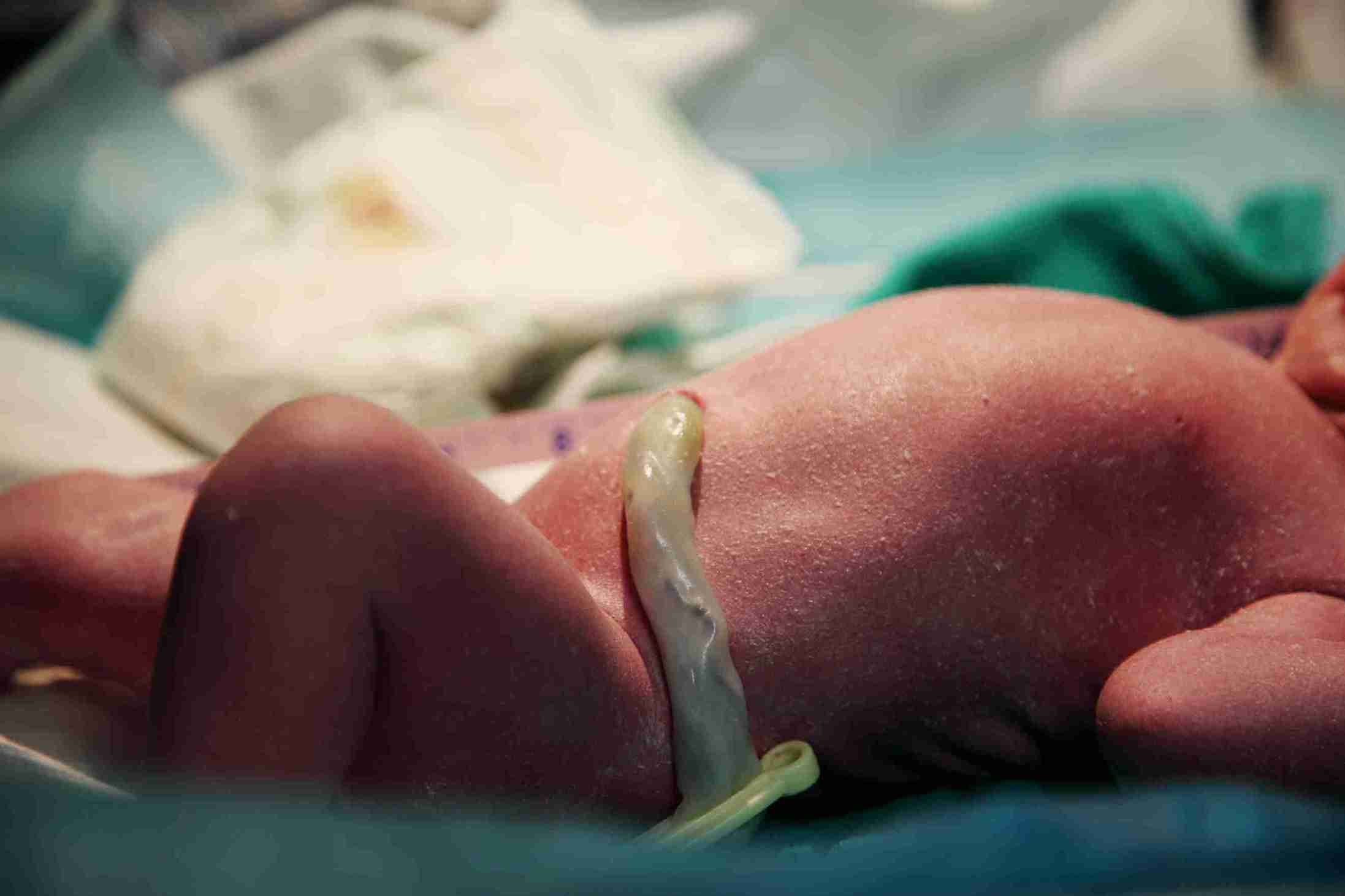
Gastroschisis is a rare but serious birth defect that affects the abdominal wall of a developing fetus. In this condition, the baby's intestines extend outside the body through an opening near the belly button. Since the intestines are exposed to the amniotic fluid in the womb, immediate medical intervention after birth is necessary. Early diagnosis and high-quality prenatal care play a crucial role in improving outcomes, reducing complications, and ensuring appropriate gastroschisis treatment.
This condition is typically identified during routine prenatal ultrasound exams and primarily affects newborns. Parents facing such a diagnosis often find it overwhelming, but with timely intervention and support from skilled healthcare providers, babies with gastroschisis can recover and thrive.

Gastroschisis is a type of congenital abdominal wall defect in which the intestines (and occasionally other organs) form outside the body of the fetus, without a covering sac. The opening typically occurs to the right of the umbilicus.
Although both are abdominal wall defects, gastroschisis is distinct from omphalocele in one essential aspect:
This difference affects the degree of exposure to amniotic fluid and the risk of infection and inflammation.
Although the cause of gastroschisis is not completely known, consuming a few things could make it more likely:
Though research is ongoing, in the majority of cases, no definite underlying cause is found.
Symptoms are usually apparent at the time of birth. Typical indicators are:
This condition is nearly always identified on routine prenatal ultrasounds, usually at about 18 to 20 weeks of pregnancy.
_11zon.jpg)
Complications of gastroschisis during pregnancy can be experienced by both the mother and the baby. These are:
Complications of gastroschisis during pregnancy can be monitored using routine ultrasounds and maternal-fetal monitoring so that the condition can be treated, and early intervention can be planned.
Gastroschisis is most often diagnosed during the second trimester using:
These tests enable physicians to schedule timely gastroschisis repair and plan postnatal surgical management.
Following delivery, surgery is the ultimate gastroschisis treatment. There are two primary methods:
1. Primary Repair
This is performed if the protruding intestines are healthy and may be safely reinserted into the abdominal cavity immediately. The incision is closed.
2. Staged Repair
If the intestines are distended or too big to be reinserted all at once, a silo bag is employed. The intestines are reinserted progressively over a period of days before the abdomen is closed.
Postoperative care entails:
Treatment of gastroschisis demands an experienced neonatal surgical and intensive care team, so hospital choice is highly significant.
Due to improvements in neonatal surgery and management, the survival rate for gastroschisis is more than 90%, especially if there are no severe associated anomalies or infections. Nevertheless, long-term management is necessary.
Infants can require:
Long-term complications may include feeding difficulties and bowel issues, but many children go on to live healthy lives.

At Cloudnine Hospitals, we realise the emotional burden and clinical challenges of prenatal diagnoses such as gastroschisis. Our multidisciplinary team of specialists and paediatric surgeons work together to provide uninterrupted care, from diagnosis to delivery, operation and aftercare.
Equipped with state-of-the-art NICUs, fetal medicine expertise, and round-the-clock paediatric surgical support, Cloudnine offers families both hope and healing. Whether you're coping with gastroschisis complications during pregnancy or seeking expert gastroschisis treatment post-birth, Cloudnine ensures your baby gets the best start in life.
Gastroschisis is an intimidating diagnosis, but it is treatable with early medical treatment and a managed care plan. Newer advancements in prenatal imaging and neonatal surgery have significantly enhanced outcomes. If diagnosed antenatally, being under the care of a specialised hospital such as Cloudnine guarantees the mother and baby the best possible medical care.
If you're pregnant and have been diagnosed with gastroschisis or just want the best possible care, make an appointment with Cloudnine's fetal medicine specialists today.

The primary solution is surgical repair, either immediately (primary repair) or gradually (staged repair using a silo).

Recovery depends on severity. It can take several weeks to months to fully recover, depending on bowel function and overall health.

Possible side effects are feeding difficulty, blockage of the intestine, and delayed weight gain. Long-term gastrointestinal problems are possible in some cases.

Yes, with immediate surgery and good care, the death rate is low, and many babies have normal, healthy lives.